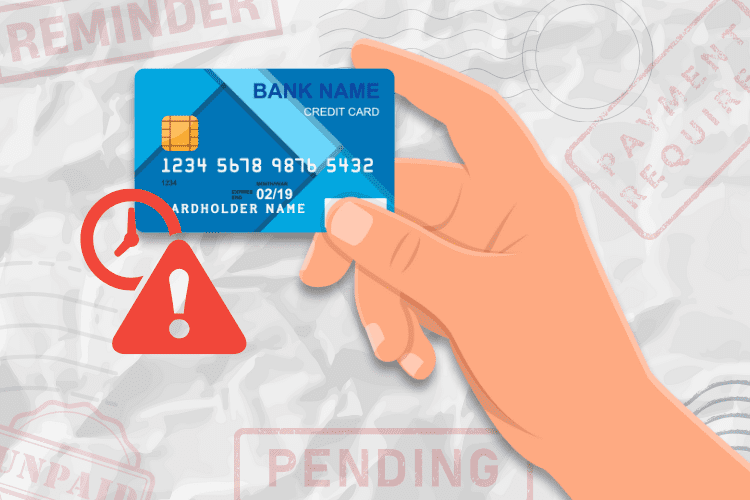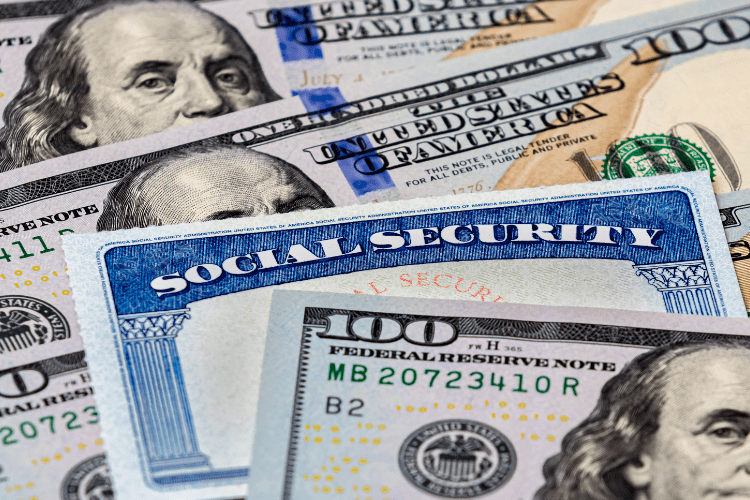What Happens If You Stop Making Credit Card Payments?

Credit cards are valuable tools to help you reach your financial goals and invest in yourself.
But say you’re one of the 9.1% of Americans who missed a payment. Things can turn for the worse pretty fast if you don’t do something. Your credit score could tank, your credit card may get suspended, and debt collectors won’t stop calling until you pay.
In this guide, we’ll discuss what can happen when you stop making credit card payments and how to prevent a situation like this from happening to you.
How Does Credit Card Delinquency Work?
A credit card company considers you in “delinquency” the minute you miss a payment.
However, most companies will warn you first. They won’t notify the credit bureaus if you pay them within a reasonable time. But the longer you take to send a payment, the harder it’ll be to dig yourself out of that hole.
Trust me, the last thing you want is to let this debt pile up and deal with the consequences that come after.
What Happens If You Miss A Credit Card Payment?
Credit card delinquency happens in stages. This system gives you time to make payments before the situation becomes more serious. However, try negotiating or paying what you owe as soon as possible to avoid ruining your credit entirely.
Here’s what happens during each stage of the process:
30 Days Late
If you’re 30 days late, you’ll need to pay a late fee and see your credit interest rates increase. This means that anytime you decide to use a card in the future, you’ll have to make larger monthly payments over the long term.
Most creditors will also notify the major credit bureaus and you could see your FICO score take a huge dip. Depending on your credit score, expect to see it drop between 50 and 100 points.
60 Days Late
Your credit score will drop even further by this point, and you may see another interest hike or late penalty. While federal law may not regulate these rate increases directly, the CFPB recently reduced the typical late fee to $8 to help consumers struggling to pay on time.
Still, even with reduced fees, paying off your balance will be even harder.
90 Days Late
After three months, the company will send it to a collection agency. Your credit score could also drop by 180 points in extreme cases.
Lenders may start reducing your credit limit or increase interest rates on other accounts as a further penalty. Expect to start getting consistent from debt collectors trying to pressure you to repay your debt.
120 Days Late Or More
The effects are basically the same as 90 days but much worse.
The credit card company could also charge off your debt and sell it to collections. If it gets to this point, this action will stay on your credit report for seven years and severely impact your ability to take out credit in the future. Creditors might also take you to court as a last-ditch effort to recover to get their money.
How To Avoid Falling Behind On Payments
No one ever needs to let their credit card situation get so out of hand. If you’re having trouble keeping up with payments, here’s what you can do:
Do Automatic Withdrawals
Are you the type to forget your due date each month? Most credit card companies can set automatic payments from their mobile app or website.
Just choose which account you want to use, set the amount to pay each month, and you’re all set! Even if it’s just the minimum amount, paying something is better than letting your balance pile up.
Treat Your Credit Card Debt Like An Essential
If you pay your rent, electricity, or groceries on time, what makes your credit card payment any different? Staying up to date with it is crucial to building your credit score and accessing mortgages, car loans, or loans with fair rates.
If you plan on having these things in the future, always set aside a portion of your income to cover these bills on time.
Talk With Creditors ASAP
While it might be hard to believe, creditors aren’t out to get you. Most of them are willing to negotiate and develop a payment plan that works for you.
That said, don’t hide from them. Take a proactive approach to solving the problem and tell them what’s going on ASAP. The earlier you do this, the easier it will be to get your account back on track.
The Bottom Line
Falling behind on a credit card can happen to anyone.
But now that you understand the consequences, don’t wait until it’s too late to get your situation back on track.
Always try to find ways to make payments, even if it’s the minimum. And if you’re in a tough financial spot, call the company and come to an agreement ASAP.
Over time, these steps could help you rebuild your credit and keep you out of financial trouble.
Read more:









